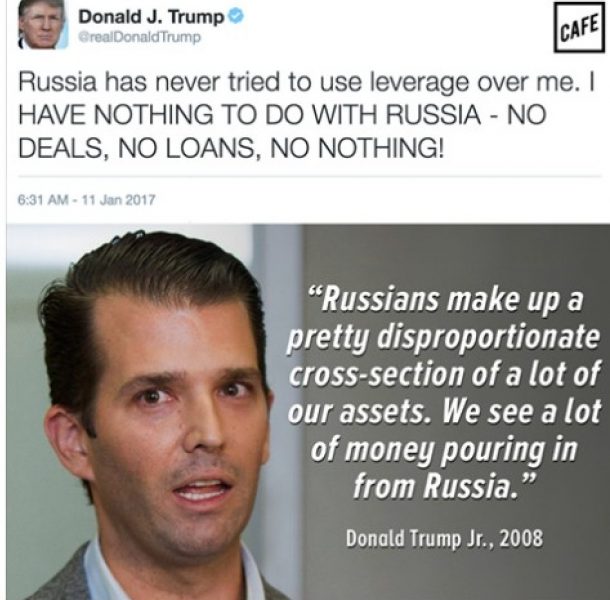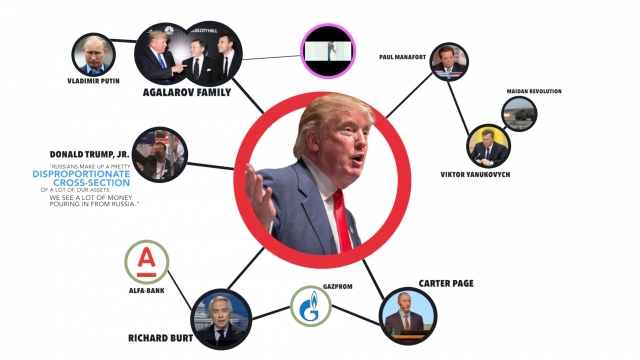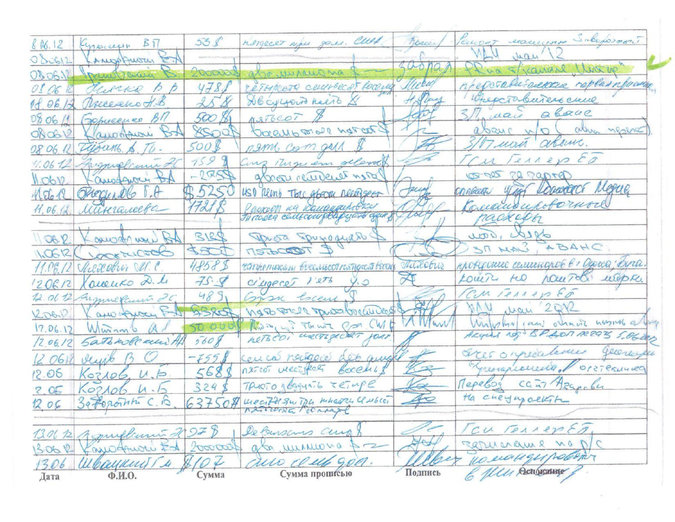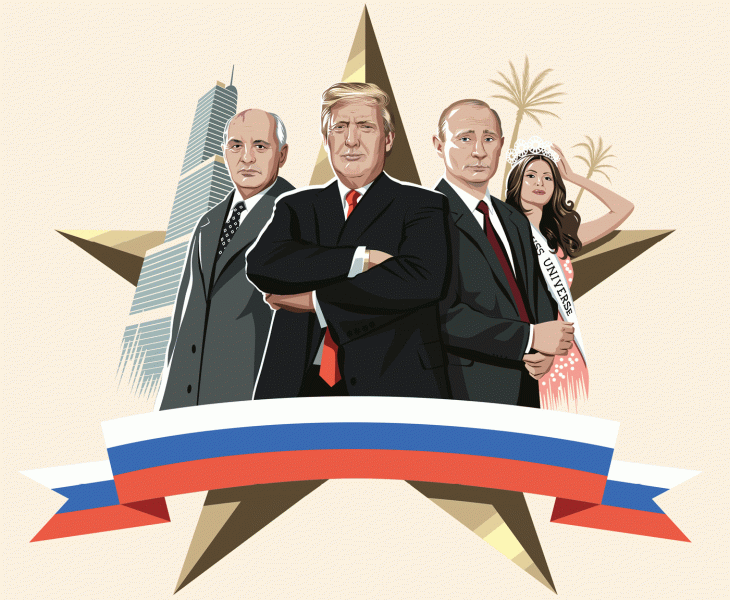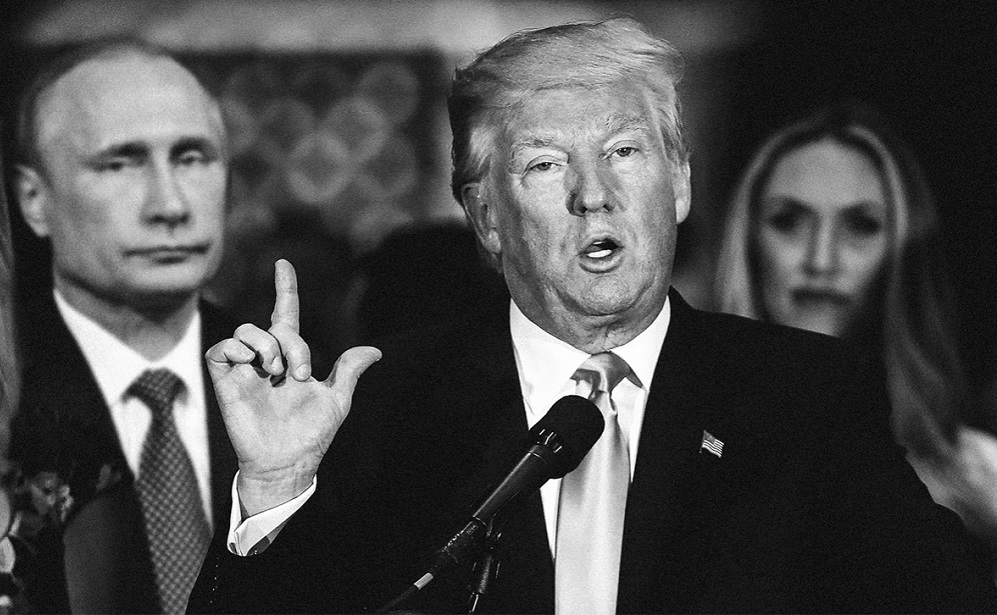
No matter how many facts are surfacing showing that President Donald Trump or one of his associates had any dealings directly with someone from Russian, he continues to deny it. The more he talks, the more questions that keep arising.
If Flynn hadn’t lied to the FBI about this and if Trump didn’t insist on continuing to say that it’s been years and years since he had anything to do with Russia, this wouldn’t be getting the deserved scrutiny it’s receiving. With Trump continuing to tell his supporters that the media is dishonest and the judicial system is wrong, it is becoming more obvious what he’s trying to do. If he can get the media and judicial system disavowed, it does help his Russia problem go away.
There’s been enough of his talk to get FBI Director James Comey to deliver a classified hour-long briefing to the Senate Intelligence Committee dealing solely with Russia. Immediately after that meeting, the Committee sent out formal requests to more than one dozen organizations, agencies and individuals making sure they didn’t destroy any documentation pertaining to this.
I am now very confident Senate Intel Comm I serve on will conduct thorough bipartisan investigation of #Putin interference and influence
— Marco Rubio (@marcorubio) February 17, 2017
Then Marco Rubio put out a tweet which only emphasized the Comey briefing showing many in DC that things were getting serious. It wasn’t just ‘fake news‘ or conspiracy theories any longer; information was surfacing quickly no matter how hard Trump denied any Russian involvement.
Even Trump’s son Donald Jr. has stated in interviews about how much money the Trump Organization has seen “pouring” in from Russia.
Now, the FBI is pursuing “at least three separate probes” dealing with Russian intervention in America’s political system. Two are related to cyber-crimes while the third is an ongoing counter-espionage probe.
Trump’s personal lawyer, Michael D. Cohen, has given two different accounts to both The New York Times and The Washington Post about giving former National Security adviser Michael Flynn, a sealed proposal which was hand delivered to the White House, that outlined a way for President Trump to lift sanctions imposed by Barack Obama against Russia.
Cohen told The New York Times that he had delivered the document to Flynn, but then he told The Washington Post he didn’t deliver the document. His story changed to him visiting the White House but never dropping off any documents.
This change of stories and blatant lying from so many within Trump’s world only creates more questions and red flags.
While there are no smoking guns right now, we are left with countless smaller questions that refuse to go away. Trump’s actions only make things seem more suspicious such as his refusing to show his tax returns, something previous administrations have had no problem doing.
Roger Stone, who’s been with Trump for decades is another enigmatic figure who has made many statements that wound up coming true causing many to scratch their heads at his seeming premonitions. Another figure, Paul Manafort, was fired from the Trump.
Another figure, Paul Manafort, was fired from the Trump campaign after his name appeared 22 times in a Ukraine ledger showing that he received $12.7 million dollars. This was from former Ukraine President Viktor F. Yanukovych’s pro-Russian political party from 2007-2012. Investigators have stated that these payments were part of an illegal off-the-books system whose recipients included election officials.
With Trump making so many favorable comments to Vladimir Putin, things begin to look murkier. Now that Russia is beginning to distance itself from Trump, officials there have been stating that his associated have had dealings there.
All of this leaves many questions which are broken down below. One question alone wouldn’t make much impact, but when you see the pattern with all the questions, it does make you realize that something is truly amiss.
Now that former Trump campaign person Jeff Sessions has been made Attorney General, we may never find out as he has the power to decide what is pursued and what isn’t. Sessions has already stated that he won’t be recusing himself from any investigations related to Russia.
Questions about Michael Flynn
Michael Flynn was a well-regarded, if somewhat unorthodox, Army officer who was promoted to head the Defense Intelligence Agency. There, he clashed with colleagues over disparate visions for the structure of the overall intelligence community and with the Obama White House over Iran policy. He was fired and sent to the fringes of the policy community, from whence he returned with out-of-the-mainstream opinions on Islam and Russia policy, a close association with the Russian television network RT, and an affiliation with Donald Trump’s presidential campaign.
A top aide to the president, he was recently fired as part of the fallout of a telephone call with Russia’s ambassador to the United States, Sergey Kislyak, during which they discussed the Obama administration’s imposition of sanctions to punish Russia for interfering in the American election. Trump says Flynn was fired due to a loss of trust between the two men, but that Flynn’s underlying conduct in making the call was fine. But:
- What exactly did Flynn say or do that caused the president to lose trust in him?
- Why did Flynn tell the public (and Mike Pence and even the FBI) that he didn’t discuss sanctions with Kislyak when he did discuss them?
- Who, if anyone, authorized or directed Flynn to call Kislyak and discuss sanctions with him?
- What, if anything, did Flynn promise Kislyak in exchange for Russia forgoing retaliation to sanctions?
- Why did White House officials continue to say that Flynn hadn’t discussed sanctions with Kislyak for days after the White House counsel was told that he had?
Questions about Carter Page
Carter Page was an American businessman of no particular renown who worked in the Moscow office of Merrill Lynch before striking out on his own with a consulting company. Nobody in Washington — and few people in Moscow — seems to have heard of him when Trump started naming him as a member of his then-threadbare national security team. The résumé boost seems to have been a boon to Page’s stature in Russia, where he portrayed himself as a big shot in ways that ended up being a liability to Trump.
His association with the Trump team ended rapidly, and Trump has ever since been at pains to minimize the degree of contact he ever had with Page.
- Why, then, did Trump name the decidedly obscure “Carter Page, Ph.D.” as one of only five national security advisers in a March 2016 interview with the Washington Post editorial board?
- Who did Page meet in his mysterious summer 2016 trip to Moscow where he billed himself (perhaps inaccurately) as a key conduit to Trump?
- Why did Page step down from the Trump team in September 2016 just as stories of the summer trip began to surface?
Questions about the mysterious Roger Stone
Roger Stone is a veteran Republican Party political operative dating back to the Nixon administration when he was a leading perpetrator of “dirty tricks” politics. By the 21st century, he was a marginal figure in national GOP politics but continued to be a player in New York via his connections to former New York state Senate Republican leader Joseph Bruno (who was later convicted on multiple corruption charges that were eventually overturned). He’s also a longtime friend of Trump’s, and a bridge between pre-campaign Trump world and the world of politics.
His exact role in the evolving Trump campaign is unclear, but he has at various times appeared to be strikingly in the know about the goings-on of WikiLeaks, and anonymously sourced news articles have suggested his ties to Russian government figures are the subject of ongoing investigation.
https://twitter.com/RogerJStoneJr/status/782443074874138624
https://twitter.com/rogerjstonejr/status/767366825743097856?lang=en
- Why exactly was Roger Stone fired from the Trump campaign back in 2015?
- Why did Stone purport to have advance knowledge of WikiLeaks releases of John Podesta’s stolen emails in the fall of 2016?
- How did Stone know in August 2016 that “it will soon the Podesta’s time in the barrel [sic]”?
- How did Stone get back into Trump’s good graces sufficiently to merit a Trump Tower meeting during the transition?
- Do US intelligence agencies have evidence that Stone was wittingly or unwittingly in touch with Russian intelligence operatives during the campaign?
Questions relating to Paul Manafort
Paul Manafort, like Stone, is an old-line Republican Party operative who’d somewhat fallen out of the national party mainstream. But while Stone became a colorful domestic figure, Manafort sought his fortunes abroad — offering consulting and lobbying services to an array of unsavory foreign governments, and eventually finding work for Ukrainian politician Viktor Yanukovych and his Party of Regions, Moscow’s main vehicle for influence in Ukraine during the 21st-century tug of war for dominance over that country.
President Trump says ousted National Security Adviser Flynn is a 'wonderful man' who has been treated unfairly. https://t.co/kwDlhT5HJH
— The Associated Press (@AP) February 15, 2017
- Why, exactly, was Paul Manafort fired as campaign manager?
- Given the firing, why was Manafort back in Trump’s good graces by December, journeying to Trump Tower and offering advice on appointments?
- Did Manafort receive more than $12 million in cash payments from the pro-Russian Ukrainian political party he worked for before joining the Trump campaign?
- Why did Manafort make several trips to Kiev between the end of his consulting work there in 2014 and late 2015?
- Did Manafort have contact during the campaign with representatives of the Russian government?
The biggest questions about the Trump Organization
Donald Trump’s financial disclosure forms reveal essentially nothing about his underlying finances because all they show is that he is the full or partial owner of a sprawling array of limited liability companies that together comprise the Trump Organization. These are privately held “pass-through” entities, whose profits and losses show up on the individual income taxes of their owners — Trump and his partners.
Because Trump has not disclosed his tax returns, this means we have no real idea how his businesses operate or where they get their money. Trump loudly proclaims he has no deals in Russia, but the physical location of deals is not the issue. And Trump has not amassed the kind of sterling record of honesty that should make anyone inclined to simply take his word for it.
For the record, I have ZERO investments in Russia.
— Donald J. Trump (@realDonaldTrump) July 26, 2016
- How much revenue and investment has the Trump Organization received over the years from Russian nationals and entities in other post-Soviet republics still in Moscow’s sphere of influence?
- Does Trump, as he has said publicly, have “ZERO investments in Russia” — and if so, why won’t he release the relevant financial records that prove it?
- Who was really behind the New York property development company Bayrock, of which Trump served as a public face, that’s enmeshed in money-laundering allegations and about which Trump said in a 2011 deposition: “I never really understood who owned Bayrock.”
- Why did Trump, upon returning from a 2013 trip to Moscow, claim to have made high-level contacts with the Russian business and political elite, claiming “almost all of the oligarchs were in the room” to meet with him?
- Was Russian money behind Trump’s business partners in Toronto, Talon International?
- What exactly did Donald Trump Jr. mean when he said several years ago, “We see a lot of money pouring in from Russia”? (Whose money? To what?)
- Are any of Trump’s hundreds of millions of dollars in gross debts held by entities close to the Russian government?
Curious questions about Trump’s policy toward Russia
Before Trump arrived on the scene, the overwhelming consensus in Republican Party politics was that the Obama administration had been too soft on Russia. Republicans believed the New START Treaty made too many concessions to Moscow, that Obama had not intervened forcefully enough against Russia’s allies in the Syrian government, that he had not done enough to back the Ukrainian government, and that he had committed insufficient military resources to the defense of Central Europe.
Trump reversed all that. And while seeming very flexible on most policy matters, he has remained quite rigid in his insistence on replacing the GOP’s old “more hawkish on Russia than Obama” stance with a new “more friendly to Russia than Obama” stance.
- Who intervened to change the GOP platform in 2016 and prevent it from calling for military assistance to Ukraine, and why?
- Why is Trump unwilling to criticize Vladimir Putin’s record on human rights and repression of domestic political opposition?
- Why did Trump call for Russia to hack Hillary Clinton’s emails at a press conference, and then stop holding press conferences?
- Why was Trump so reluctant to accept the conclusion of the intelligence community that the Russian government was behind the hacks of the DNC and John Podesta?
- Why was Trump so reluctant to speak about aggressive Russian activity since his inauguration, whether in Ukraine, the Black Sea or even right off the coast of the United States, until directly asked at a press conference?
The biggest questions everyone wants to know about Trump and Russia
A lot of these details are essentially trivia, but they add up to a few big, explosive questions about why the president of the United States keeps needing to distance himself from his own associates, won’t reveal what’s going on with his money, and insists on advancing an unusual foreign policy doctrine.
Did the Trump campaign, directly or indirectly, actively collaborate with the Russian government over the course of the 2016 campaign?
Is the Trump Organization benefiting from ongoing or recent financial flows from the Russian government or people close to it?
Does the Russian government have dirt on Trump, relating to past shady financing or to some of the more salacious blackmail material alleged in the infamous “Steele dossier,”that’s influencing American policy?
The smaller questions that keep piling up into larger ones.
“Where there’s smoke, there’s fire” is a good dictum for forestry management but doesn’t really apply to politics.
Politicians try to avoid embarrassment, and a simple desire to own up to something embarrassing — rather than anything illegal or genuinely nefarious — often lies behind the mysterious behavior. It’s entirely possible that Page ended up on the roster of Trump advisers simply because a disorganized campaign was taken in by a grifter. Trump’s refusal to engage in standard financial disclosure certainly seems to be about covering up something, but that something could have nothing to do with Russia.
The shifting and inconsistent stories about the Flynn timeline could be nothing more than a disorganized and distrustful White House staff bungling something and then compounding the bungling by not wanting to admit they were bungling.
Trump’s boast about meeting with oligarchs could just be a habitually dishonest person lying for no particular reason.
But especially in light of Trump’s unorthodox policy views on Russia, the sheer quantity of outstanding questions and loose threads is remarkable.
That’s doubly so because the Trump team has repeatedly tried to have it both ways on a number of these fronts — with Stone, Manafort, Page, and Flynn all distanced from Trump once their Russia connections came to light, even as Trump denies there was any underlying wrongdoing and appears not to have fully severed ties.
Trump has repeatedly, and increasingly angrily, suggested that the answer to the three big questions is uniformly no. But his inability to provide satisfactory answers to the myriad other questions means it’s hard to take him at his word.


